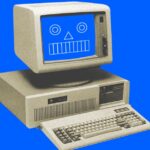Alibaba is moving into the smart glasses market with a device powered by its own AI models, part of a wider $52.4 billion furthering of AI and cloud computing. The Quark AI Glasses marks the company’s first step into the wearables category and is due to launch in China by the end of 2025.
The glasses will run on Alibaba’s Qwen large language model and its AI assistant, Quark. Quark is already available as an app in China, but this will be the first time the company is pairing it with hardware to reach more users.
The Hangzhou-based firm has been one of China’s more active AI developers, rolling out models designed to compete with systems from companies like OpenAI. By moving into smart glasses, it joins a growing group of tech players betting on wearables as the next major computing platform alongside smartphones.
Pushing into hardware
The Quark AI Glasses will enter a market that already includes Meta’s smart glasses made with Ray-Ban and a model launched this year by Xiaomi. Alibaba’s version will offer hands-free calling, music streaming, real-time translation, meeting transcription, and a built-in camera.
Alibaba operates a broad set of services in China and the glasses will connect to that ecosystem. Users will be able to access navigation, make payments through Alipay, compare prices on Taobao, and tap into other Alibaba-owned platforms like mapping and travel booking.
While the company has outlined some features, it has not revealed the price or detailed specifications.
The data behind the devices
Smart glasses like Alibaba’s depend on AI systems that can recognise images, interpret context, and respond in natural language. The abilities rely on huge amounts of labelled data – information that has been reviewed and tagged by humans so the AI can learn from it.
That process often involves “human-in-the-loop” (HITL) systems, where people provide input at key stages of training and testing. To understand how this works in practice, AI News spoke with Henry Chen, co-founder of Sapien, a company that manages large, distributed workforces for data labelling. Chen discussed common misunderstandings, the demand for skilled contributors, and how China’s AI growth is influencing the industry.
Misconceptions about HITL
One common belief is that HITL is simply data labelling. Chen said it’s more complex, involving decisions on edge cases, judgement calls, and ongoing evaluation. “Continuous feedback is what makes HITL work instead of one-off datasets,” he said.
Another misconception is that the work is low-skilled. Chen said the rise of industry-specific AI has created demand for domain experts like doctors, lawyers, and scientists to contribute their knowledge.
Sapien works with 1.8 million contributors in 110 countries. For complex tasks like contextual understanding or visual recognition, maintaining quality is critical. Chen said the company uses peer validation, contributor reputation tracking, and aligned incentives to ensure consistent results.
China’s AI growth and demand for labelling
China’s AI sector is expanding quickly, and demand for data labelling is catching up to the levels of the US. While China has its own rules and regulations, Chen said the types of projects are increasingly similar to those in other major markets.
With such a large and dispersed workforce, Sapien uses on-chain technology to make payments transparent and give the community a say in which projects are worth pursuing. By operating without traditional offices, Chen said they avoid some workplace issues and focus on rewarding contributors for the value they deliver.
Automation is changing data labelling, but Chen believes humans will remain central to certain types of work. Tasks involving cultural nuance, sarcasm, rare diseases, niche languages, or complex sentiment will still need human review. “Humans will shift focus towards long-tail data and new vertical domains,” he said, predicting a rise in AI-assisted labelling while people handle the most challenging cases.
Sensitive projects, like the IP of large corporations or international organisations, require strict controls. Chen said Sapien vets and trains enterprise contributors, uses data minimisation and access controls, and follows compliance rules set by clients. The company works under frameworks like SOC 2 Type 2, GDPR, and HIPAA.
Looking ahead
As AI models become better at learning from unlabelled data – known as self-supervised learning – some expect the need for human labelling to shrink. Chen sees the role of human contributors changing rather than disappearing.
“We will evolve into a more specialised industry,” he said, noting that Sapien is already doing more work on evaluating synthetic data and model outputs. He expects future projects to focus on curating unique “ground truth” datasets, assessing AI performance, and providing domain-specific expertise.
From glasses to the broader AI race
Alibaba’s smart glasses highlight how far AI has moved into everyday products. While they may be one of many wearable devices in the market by 2025, the combination of Alibaba’s in-house language model, its existing services, and hardware integration could make them stand out for users in China.
At the same time, products like these depend on a complex supply chain of human expertise, from the engineers building the models to the contributors refining the data they use. Companies like Sapien operate behind the scenes, making sure AI systems have the information they need to function more accurately and responsibly.
Whether in the form of smart glasses, virtual assistants, or other yet-to-be-released devices, AI-driven hardware is becoming a new way for companies to bring their services directly to consumers. For Alibaba, the Quark AI Glasses are both a product launch and a statement about where it sees growth – in technology that combines software, hardware, and human input.
(Photo by Panos Sakalakis)
See also: Alibaba’s AI coding tool raises security concerns in the West
Want to learn more about AI and big data from industry leaders? Check out AI & Big Data Expo taking place in Amsterdam, California, and London. The comprehensive event is co-located with other leading events including Intelligent Automation Conference, BlockX, Digital Transformation Week, and Cyber Security & Cloud Expo.
Explore other upcoming enterprise technology events and webinars powered by TechForge here.
Read the full article here













